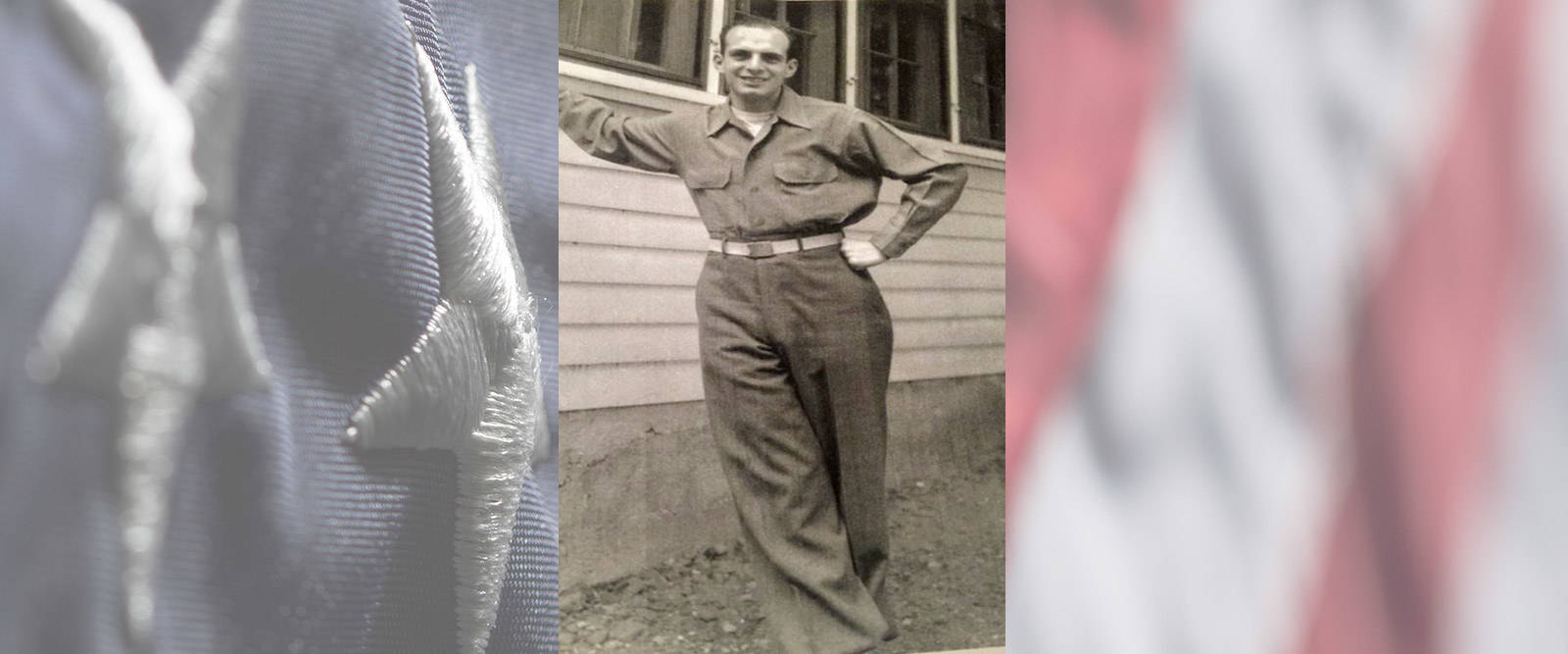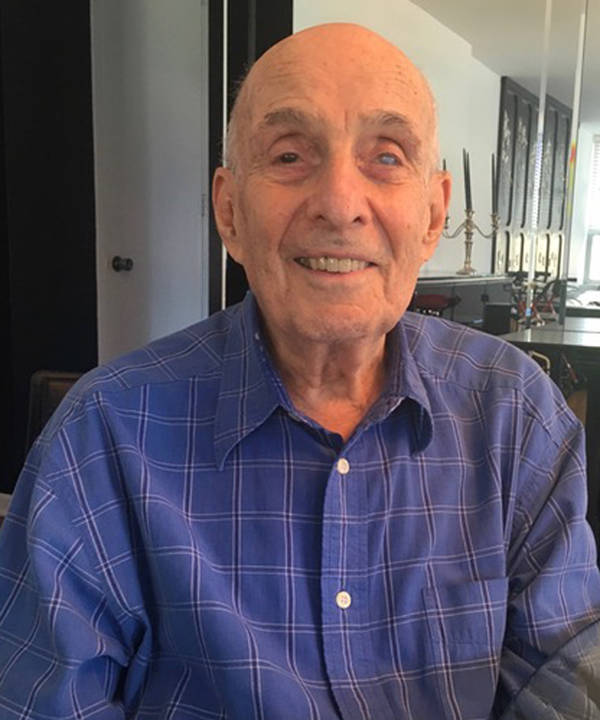U.S. Army World War II Chicago, IL Flight date: 09/12/18
By Wendy Ellis, Honor Flight Chicago Veteran Interviews Volunteer
He’ll never know how many miles he walked. From the beaches of Normandy, two days after D-Day, through the backroads and small villages of France and Belgium, Corporal Howard Adolph and the other foot soldiers of the 86th Infantry made their way across Europe toward the Western Front. As part of Patton’s 3rd Army, they would eventually take part in the Allied effort to stem the Battle of the Bulge, march on into Germany, and even prepare for an invasion of Japan.
Today, three quarters of a century later, Howard does not let the war define him. “Certain things you cannot remember,” he says from his Chicago home. “And certain things you cannot forget.”
Adolph enlisted in the Army just six months out of Chicago’s Hyde Park High School because he “thought it was the right thing to do.” It was December of 1943 and he had just turned 18. Six months later, trained in the handling of 50 caliber machine guns and other heavy weapons, he hit the beaches of Normandy and began the long trek across Europe. There was fighting almost every day. “You take over a town and move on,” says Howard. “Where you were wasn’t important. It was the fact that you were alive and doing what you were supposed to do. My responsibility was to shoot, no matter what happened.” Diving into foxholes and dodging enemy fire became commonplace for Adolph.
One evening, just at dusk, as his company walked along one of a thousand country roads, a small plane came out of the sky and started shooting at them. He and his fellow soldiers dove for the side of the road as the bullets flew. Each evening, for the next few nights, Howard and his fellow soldiers would hear the plane coming, the guns firing. “It always happened at dusk,” says Adolph. “So we named him Bed Check Charlie.” Then, one evening, they heard the plane coming but no gunfire. They looked up as the plane flew overhead, and the pilot had his hand out the window. He was waving goodbye. “Away he went and we never saw him again,” says Adolph.
The Battle of the Bulge proved to be the deadliest battle of the War, but also a turning point for Allied armies who pushed enemy forces back into Germany. The 86th Infantry pushed westward, eventually ending up in Berchtesgaden, once Hitler’s favorite retreat. But by then Hitler was dead, and the war with Germany had come to an end. But the fighting wasn’t over. The war with Japan waged on, and Howard’s unit was sent back to Camp Pendleton to prepare for an invasion of that Asian nation.
That invasion never happened, of course. On their way to Japan the atomic bombs were dropped at Hiroshima and Nagasaki, and the war with Japan officially ended. Their ship was diverted to the Philippines, where Japanese soldiers, unaware of their country’s surrender, or just disbelieving of it, were still fighting in the hills and mountains. Adolph and his fellow soldiers were assigned to seek out those Japanese holdouts. “The Japanese could climb up into those trees and sit, without moving a muscle, all day long,” says Adolph. As far as they were concerned, the war was still on, and both Japanese and U.S. soldiers continued to die.
Finally, in May of 1946, Howard Adolph came home. He finished college at Northwestern University, opened a restaurant on Rush street for a bit, and eventually started a business outfitting hotel interiors. Shortly after his return, he met and married his wife of 52 years, Maita Honey, raising two sons and a daughter along the way.
When asked why he thinks he got to come home when so many others did not, he tells this story. In one unknown town he and his fellow soldiers were enjoying a rare moment of calm when they suddenly heard bombs dropping. Adolph dove under the nearest truck for cover, and watched a very nervous GI across the way, huddled in a not-so-safe nook. “I kept saying, come under the truck! Come under the truck,” says Howard. “But he was probably scared and didn’t want to expose himself. When it was over I said ‘Charlie, why didn’t you come get under the truck?’ And he pointed to the truck and said, ‘That’s why!’ The truck I was under was loaded with all our guns and ammo! If I’d been hit, I would have been 20 feet in the air! So I can only say, I got lucky.”
Howard Adolph, thank you for your extraordinary courage in the US Army during WWII. Honor Flight Chicago salutes you! Enjoy your well-deserved trip of honor to Washington DC.




